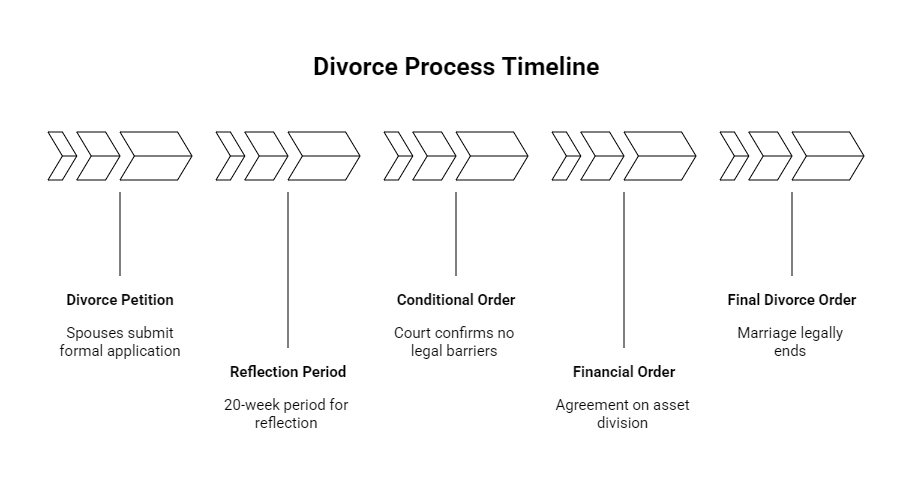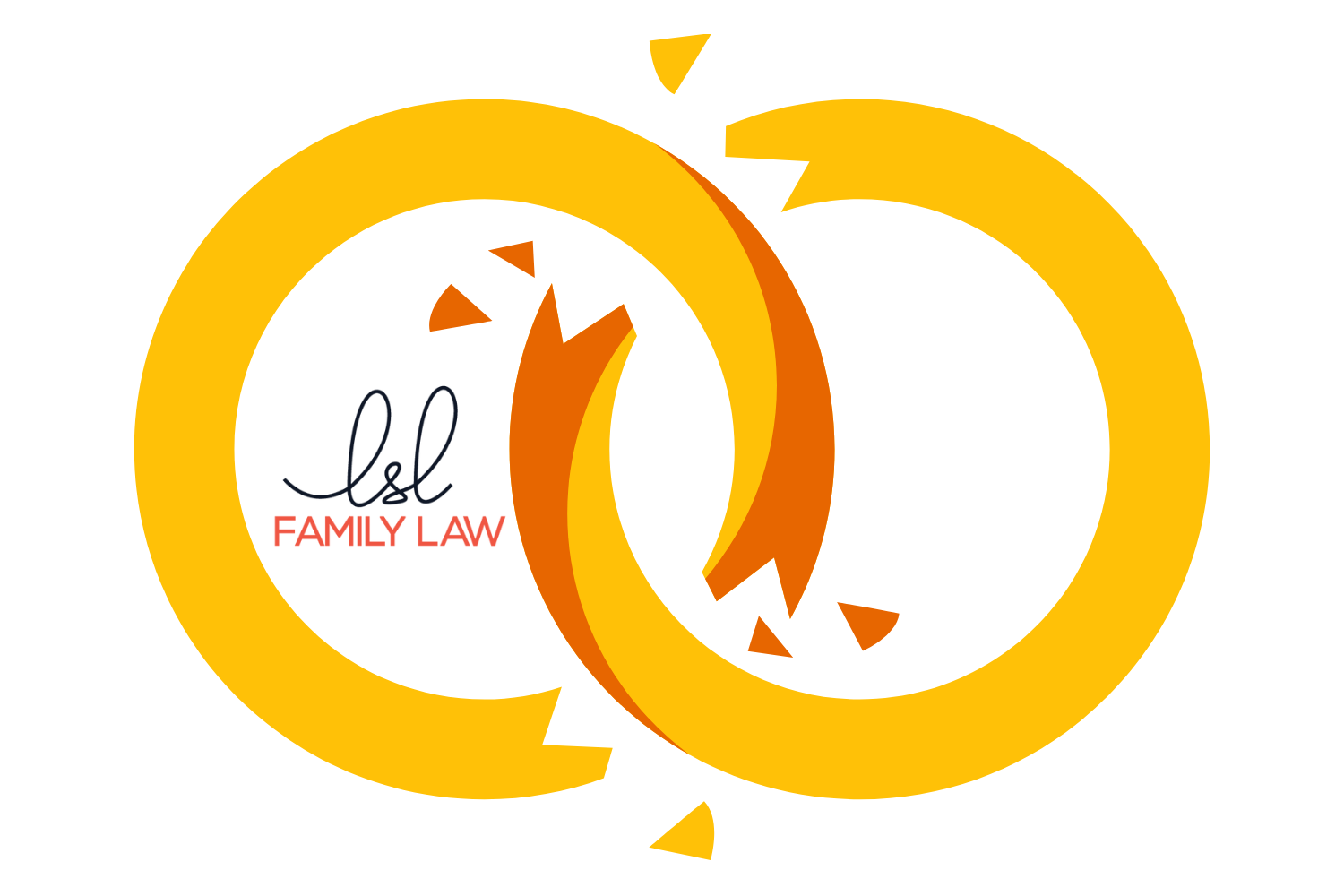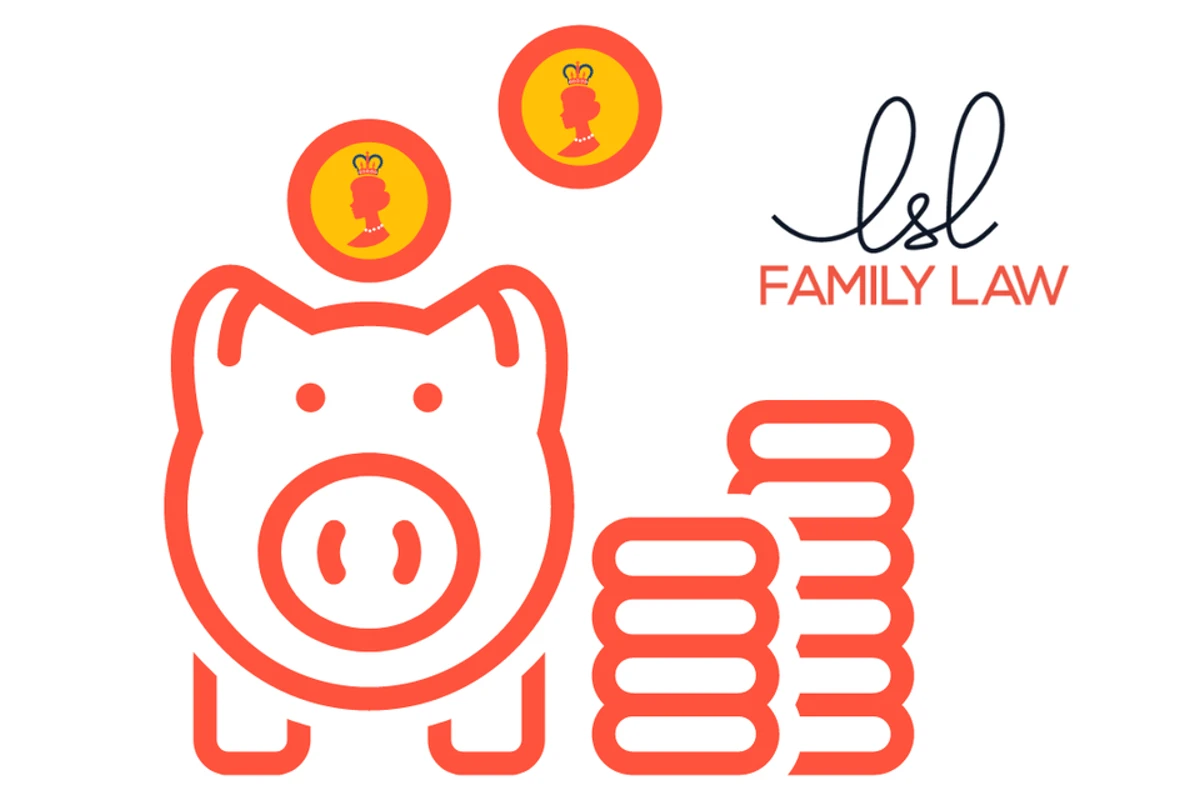Understanding the No-Fault Divorce Process: What Separating Couples Need to Know
On 06 April 2022, the Divorce, Dissolution and Separation Act 2020 came into force in England and Wales, removing the need to allocate blame for the collapse of a relationship. In a previous edition of our podcast, Linda Lamb and Tanya Forster discussed the implications of the no-fault divorce act. You can listen to the podcast here or read on to discover key advice for separating couples.
What you will learn from this article:
- The no-fault divorce act removes the need to assign blame, helping couples reduce conflict and focus on the future.
- Couples can now make a joint application, and the process includes a minimum 26-week period to reflect and make arrangements.
- There is no longer a requirement to prove adultery or unreasonable behaviour – a simple statement of irretrievable breakdown is enough.
- Mediation is encouraged, allowing families to make thoughtful, lasting decisions about finances and children.
- Legal advice remains essential, particularly when it comes to financial settlements and child arrangements.
What is no-fault divorce?
No-fault divorce law is something that good family lawyers have been trying to achieve for many years. Before the introduction of no-fault divorce, previous divorce laws required one party to rely on specifying the grounds for divorce e.g. adultery or unreasonable behaviour. This meant that the start of the divorce had already caused considerable upset before you had moved on to other issues such as children or finances.
Resolution, our professional body, campaigned to end the blame game for a number of years. Eventually, the Divorce, Dissolution and Separation Act was passed in 2020. We thought that the act would come into force earlier, but it was delayed until 06 April 2022.
Now that the law has changed, people applying for a divorce or dissolution no longer need to rely on outdated and often painful concepts such as adultery or unreasonable behaviour. Instead, couples can apply on the clear and simple basis of irretrievable breakdown, acknowledging that the relationship has come to an end and allowing the divorce process to move forward with less conflict and blame.
What are the practicalities of the Divorce, Dissolution and Separation Act?
The overall divorce/dissolution process can now take longer, a minimum of 26 weeks from beginning to end. This timeframe has been designed to give people the opportunity to reflect upon whether divorce or dissolution really is the right decision for them, and to resolve financial arrangements and arrangements for children.
A huge change introduced by the no-fault divorce act is that joint applications can now be made which is a really positive step. And the main difference, of course, is that those applying for divorce or dissolution no longer have to prove anything, they can simply state that their relationship has irretrievably broken down.
This paves the way for separating couples to work more cooperatively. If the family court does need to intervene, conduct will still be taken into account where it is relevant in terms of finances and children, but this will not apply in the vast majority of cases. People are now able to move on without having to evidence what happened when and remember who said what.
Thinking about applying for a divorce or dissolution? You can contact the LSL Family Law team by telephone on 01273 041011 or the contact form on our website.
The No-Fault Divorce Timeline
Reflection period
After the divorce petition is issued, there is a minimum 20-week period. This time is designed to allow space for reflection and for practical matters, such as arrangements for children and finances, to be considered.
Conditional order
Once the reflection period has passed, an application can be made for a conditional order. This confirms that the court sees no legal reason why the divorce cannot proceed.
Financial order
Before the divorce is finalised, it is strongly recommended that a financial order is agreed and approved by the court. This legally records how assets, income, pensions, and liabilities are to be divided, providing certainty and protection for the future.
Final divorce order
A minimum of six weeks after the conditional order, an application can be made for the final divorce order. This legally ends the marriage and confirms that both parties are divorced.

What else should separating couples think about when applying for a divorce or dissolution?
The final order legally ends the relationship, but it doesn’t do anything more than that. As family law solicitors, what we are concerned about is that people will forget to sort out the finances. Especially if pensions are not taken into account when a couple splits, one of the parties could suffer financially in the long term.
Anyone who is contemplating divorce or dissolution should seek legal advice about the financial settlement – dividing property and pensions – and also child arrangements. We encourage married couples to attend mediation so that they have the opportunity to talk things through and arrive at a fair agreement.
Decisions reached in mediation can then be turned into a court order to finalise the financial aspects of the relationship once and for all. You only get one chance to sort things out and it has to be done properly.
Client Testimonial: Highly capable, thorough, experienced mediator
“We would recommend Linda based on her experience, impartiality, thorough and professional handling of documents, and clarity of communications. Also, a pleasure to work with and very patient with us.”
What can couples expect when they attend mediation?
During mediation, couples meet either in person or virtually and a neutral mediator helps them to discuss a way forward, holding conversations about money, property, pensions or arrangements for children. The beauty of mediation is that the families retain control, no one is making decisions for them. The mediator’s role is to enable the couple to work together to reach an agreement.
Sometimes, people are nervous about the prospect of meeting with their ex-partner and cannot face the thought of being in the same room. In this situation, alternatives such as shuttle mediation or hybrid mediation can be considered.
During shuttle mediation, each party occupies a different space (either physically or virtually), and the mediator moves between them. Hybrid, or solicitor-inclusive mediation, involves both parties’ attending mediation with their legal representatives which means that they can receive advice and support at every stage of the process.
To discuss your situation in confidence, contact the contact the LSL Family Law team by telephone on 01273 041011 or the contact form on our website.
What are your main pieces of advice for separating couples?
First and foremost, you should avoid rushing into anything. Is there any way that your relationship can be saved? It is worth trying counselling before considering divorce or dissolution.
If your relationship is damaged beyond repair then you need to plan how your relationship is going to end and, if you have children, how you are going to break the news to them.
It is important for both parties to seek legal advice regarding what to do next. The no-fault divorce process and dissolution process is now online – on a government portal – and completing the divorce application yourselves saves quite a bit of money. You can then focus on the more important parts, the finances and the children.
Obtaining good legal advice at the very start is the key, hopefully from someone who will give you information which you can go away and reflect upon. Then you can make informed decisions about what you do next.
How can you avoid family lawyers who fan the flames to earn higher fees?
Sadly, there are still a few rottweiler lawyers around! Engaging a lawyer who takes an aggressive stance does not benefit the family. The animosity builds, the costs escalate and no one wins, especially not the children of the relationship.
Find a lawyer who is an accredited member of Resolution, our professional body, so you know that they have signed up to the ethos of Resolution i.e. trying to sort things out rather than making them worse. You need someone who will give you initial advice and who will encourage you to attend mediation which is the least expensive option.
Mediation is a tried and tested way of improving communication between separating couples and effective communication is crucial, particularly if you have young children.
How do LSL Family Law clients start the divorce or dissolution process?
If you are considering applying for a divorce or dissolution, you can contact the LSL Family Law team by telephone on 01273 041011 or the contact form on our website. We have an AI platform, Settify, built into the website (just press the ‘Get Started Online’ button) which enables you to input your details and request an appointment with a solicitor.
Once the initial contact has been made, we will arrange a quick chat with you to determine what you need and establish if we are the right next step for you. If our team can help, then we will organise a consultation which is usually held via Zoom or Teams.
The information gathered by Settify enables us to prepare in advance (free of charge!) so that we spend the consultation discussing your unique situation rather than wasting time jotting down names and dates.
Will no-fault divorce make the process less arduous for couples?
Yes, the new no-fault divorce act rules should remove the friction at the start of the process. There has been a lot of press coverage suggesting that the legislation will make it too easy for couples to divorce, but we don’t agree.
People tend to reflect for a long time before they apply for a divorce or dissolution. It is a big step for them to take, especially if they have children. No one takes the decision lightly given the upheaval that they know they are going to face.
With no-fault divorce, hopefully there will be less pain at the beginning and then the focus can be on making arrangements for the future. We always encourage our clients to make a list of questions and go through them to ensure that when they finish that first meeting, they can reflect on the answers and feel that they can go forward with a plan in place.
Where can I find more information?
If you would like to find out more about the divorce/dissolution process, please visit our Divorce & Finance Services page or give Linda or Tanya a call on 01273 041011. We can also recommend visiting the Resolution website and the government pages entitled Get a divorce or End a civil partnership.
About the Author
Linda Lamb is the founder of LSL Family Law and a family law expert with over 25 years’ experience. She is a Resolution-accredited solicitor, mediator, and children arbitrator, known for her calm, compassionate, and practical approach to helping families navigate divorce and separation.






